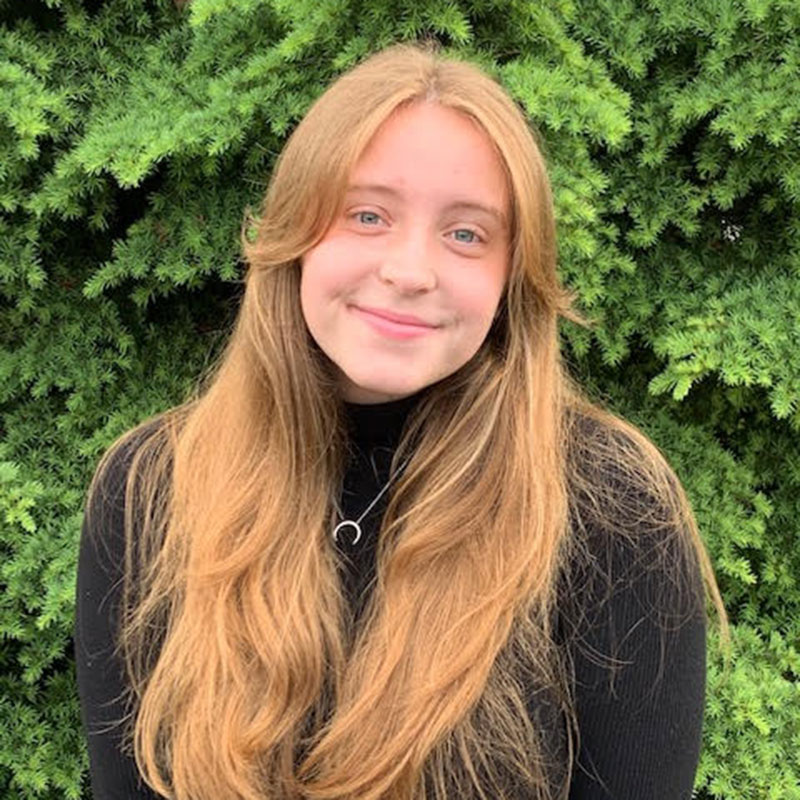
Chemistry junior earns prestigious Barry Goldwater Scholarship for undergraduate science
Margaret Steward ’26, a chemistry major and German studies minor at The College of Wooster has received a Barry Goldwater Scholarship for the 2025-2026 […]
Access to lab facilities, early research opportunities with faculty members and small classes at The College of Wooster give Chemistry majors lots of choices after graduation. Wooster is a national leader among private four-year undergraduate institutions when it comes to the number of graduates who go on to earn a Ph.D. in chemistry. Wooster ranks third among U.S. institutions where women doctorate recipients in chemistry earn bachelor’s degrees according to a 2019 report published by the Council of Independent Colleges and based on data from the National Center for Education Statistics and National Science Foundation. About 50% of our graduates go on to Ph.D. programs; another 20% enroll in medical or dental school. Other graduates are employed as teachers or work in labs for Merck, Eli Lilly & Co., Agilent and more.
In addition to core courses, all students at The College of Wooster complete independent research under the guidance of a faculty mentor. This focused research project (of the student’s design) gives chemistry majors several semesters to develop research and presentation skills, culminating in a presentation to a faculty panel. Chemistry majors build professional skills for careers in the sciences, while also building critical thinking skills and expanding their perspectives through the variety of courses available at a small, private liberal arts college.
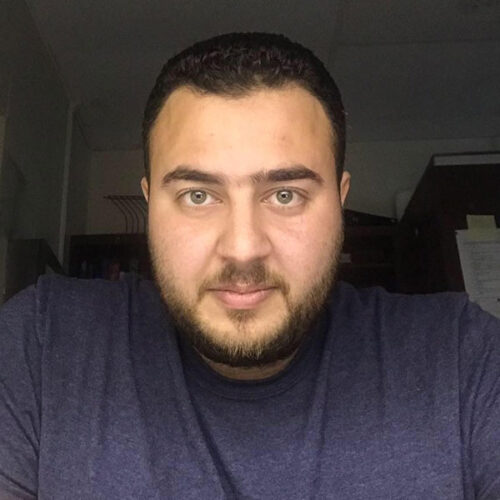
Sealts Distinguished Visiting Assistant Professor of Chemistry
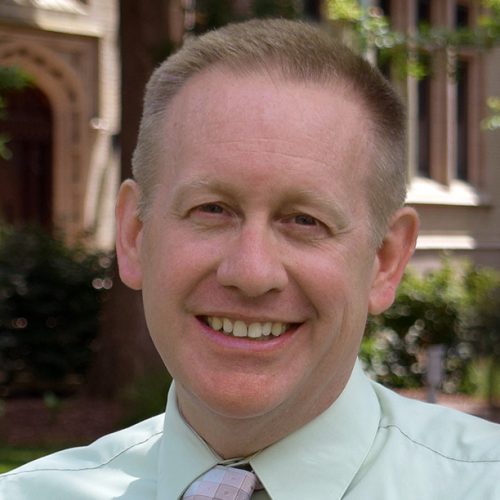
Theron L. Peterson and Dorothy R. Peterson Professor of Chemistry; Department Chair of Chemistry; Biochemistry and Molecular Biology
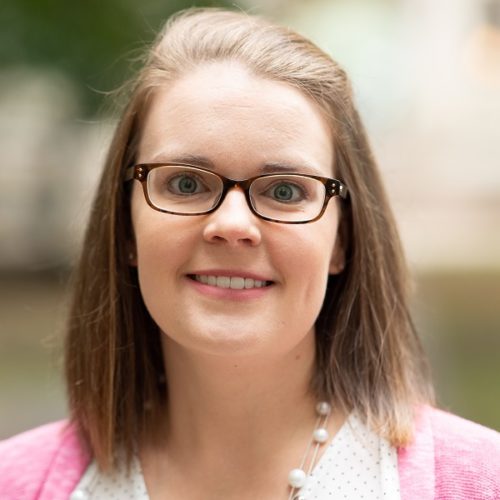
Associate Professor of Chemistry; Biochemistry and Molecular Biology
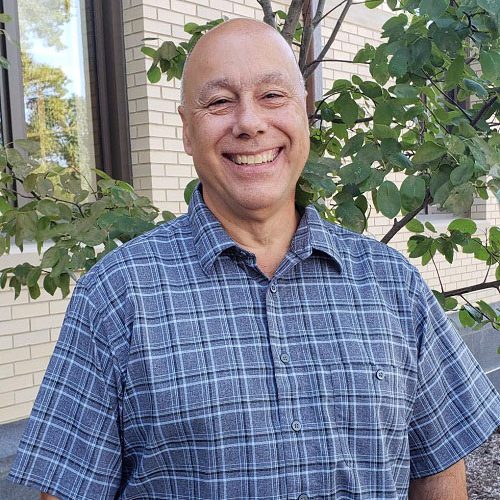
Instrument and Lab Tech/Machinist - Biology, Chemistry, Earth Sciences, Physics
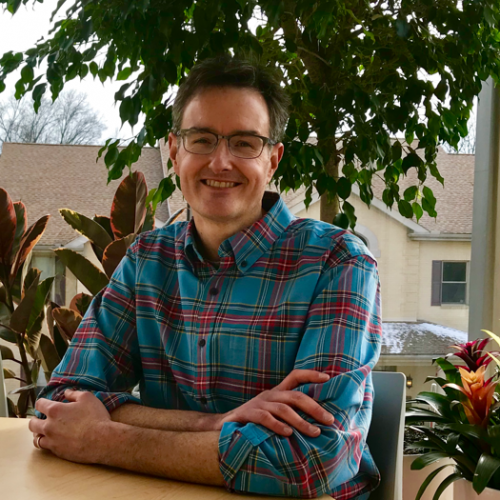
Robert E. Wilson Professor of Chemistry and Biochemistry and Molecular Biology
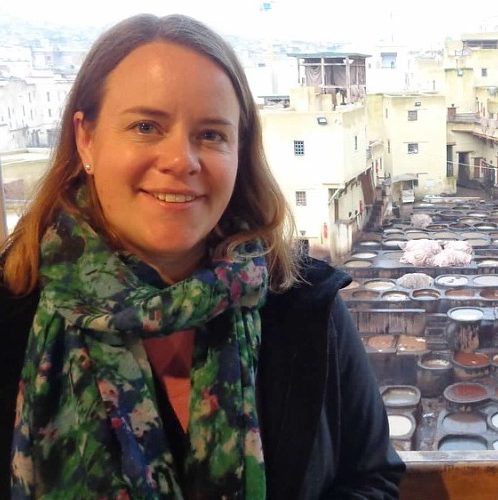
Professor of Chemistry and Dean for Faculty Development
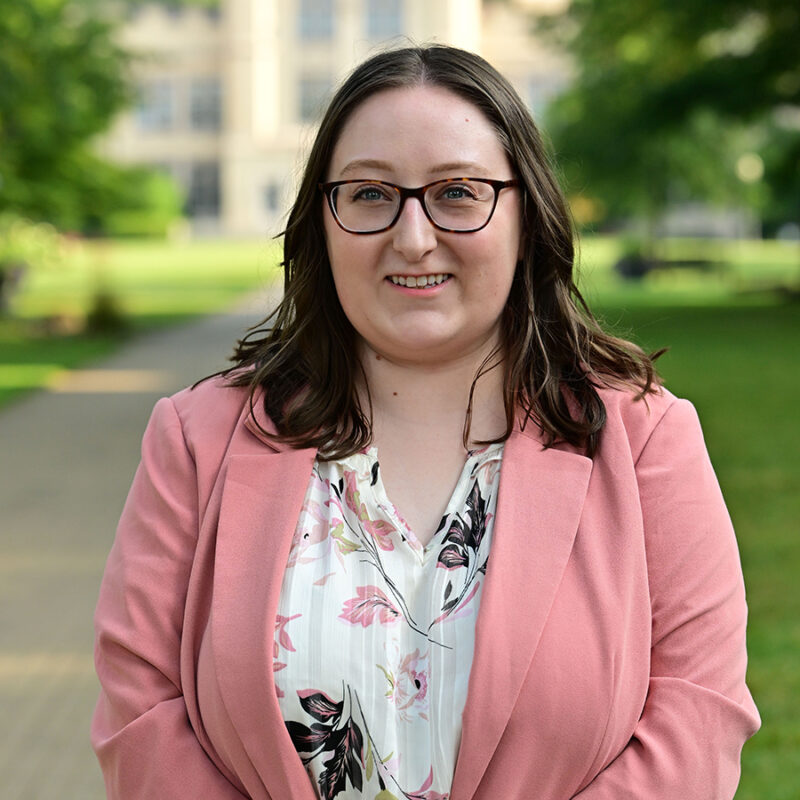
John Coventry Smith, Jr. and Barbara Polley Smith Visiting Assistant Professor

Margaret Steward ’26, a chemistry major and German studies minor at The College of Wooster has received a Barry Goldwater Scholarship for the 2025-2026 […]

Sara Martin, assistant professor of chemistry at The College of Wooster, and five undergraduate students in her chemistry lab recently published research that may […]
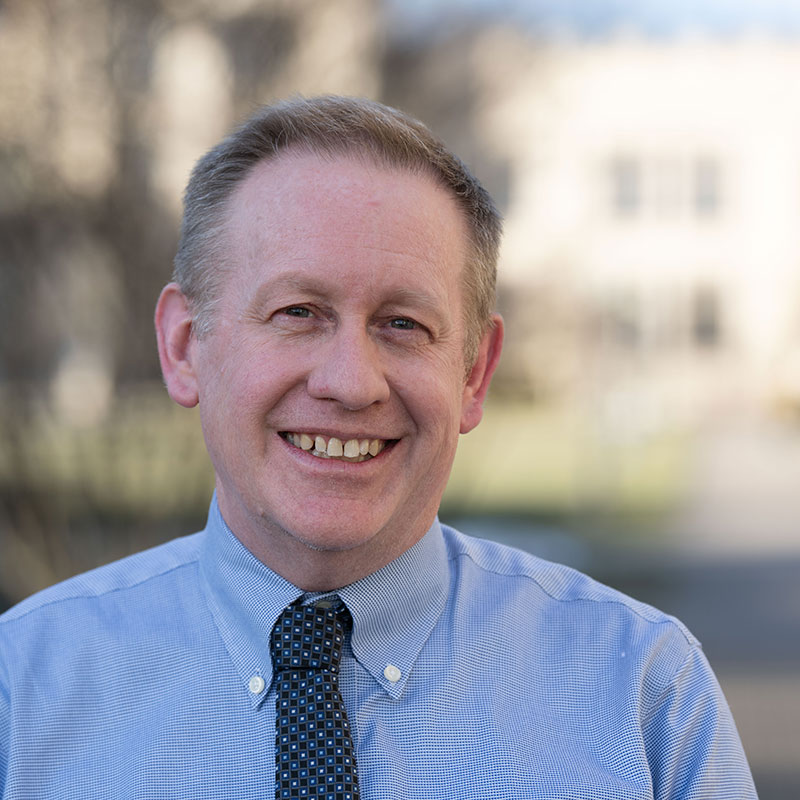
A new environmental monitoring tool, developed and initially tested in The College of Wooster lab of Paul Edmiston, Theron L. Peterson and Dorothy R. […]
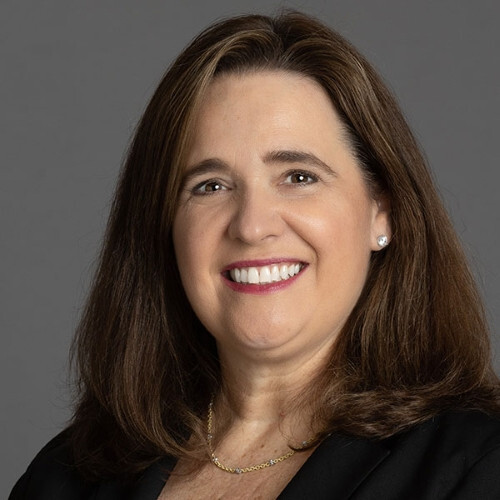
Before you trust a drug to treat your symptoms or illness, the pharmaceutical process the medication completes includes steps in research, development (including nonclinical […]
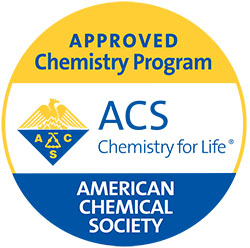
Chemistry majors follow a curriculum informed by the American Chemical Society’s Committee on Professional Training comprised of courses across the major subdisciplines of chemistry.
The major requires completion of 15 course credits and room for electives and foundational courses in the liberal arts. Three semesters’ worth of work on Independent Study are factored into the major course of study.
View CoursesA minor in chemistry requires completion of six courses:
The College of Wooster is nationally recognized for its program of Independent Study, and for more than 50 years the College has required that every graduate complete a significant Independent Study project under the guidance of a faculty mentor. Chemistry majors begin identifying the project that will be the subject of their Independent Study thesis early in their junior year. Seniors set aside both semesters of their senior year to work on and deliver their projects.
| Student | Year | I.S. Title | Major 1 | Major 2 | Advisor |
|---|---|---|---|---|---|
| Please search to view results | |||||
Ferdawss Ihiri ’23 grew up in Morocco, where students who wish to study abroad typically attend school in Paris. Traveling to the United States […]
Name: Nosherwan Mughal Major: Biology Minor: Chemistry Advisor: Laura Sirot Aedes aegypti are notorious vectors that transmit deadly pathogens to humans. Odorant Binding Protein […]
Name: Sarah Mullen Major: Chemistry Minor: Mathematics Advisors: Dr. Karl Feierabend, Dr. Sarah Sobeck (second reader) Computational chemistry uses computer simulations to solve chemical […]
Name: David DiGena-Segal Major: Chemistry Advisors: Jennifer A. Faust, Rebekah E. Gray, and Paul L. Edmiston Pesticides are commonly found environmental contaminants and health […]
Approximately 50 percent of Wooster chemistry graduates enter Ph.D. programs in areas including chemistry, environmental science, biochemistry and epidemiology. Another 18 percent have gone on to health professional schools. Graduates in chemistry have won Fulbright Awards and have gone on to earn advanced degrees at some of the nation’s most prestigious research universities.
Before you trust a drug to treat your symptoms or illness, the pharmaceutical process the medication completes includes steps in research, development (including nonclinical […]
Jason Rosch ’01 initially chose The College of Wooster for its small class sizes, engaged faculty, and tight-knit community, as well as the emphasis […]
In 2020, of the 13,204 babies born in Cuyahoga County, 101 didn’t make it to their first birthday. The majority (73%) of these babies […]
Lecture, endowment honor legacy of Helen Murray Free at Wooster
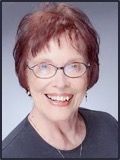 Helen Murray Free, a 1945 College of Wooster graduate and a pioneering scientist who was inducted into the National Inventor’s Hall of Fame in 2000, was honored with the inaugural Helen Murray Free Endowed Lecture, featuring Dr. Mary Lowe Good.
Helen Murray Free, a 1945 College of Wooster graduate and a pioneering scientist who was inducted into the National Inventor’s Hall of Fame in 2000, was honored with the inaugural Helen Murray Free Endowed Lecture, featuring Dr. Mary Lowe Good.
The lecture series was established by Helen’s children and endowed through the Al and Helen Free Foundation. Each year, this endowed fund brings a renowned chemical scientist to campus to interact with chemistry students at a technical level and present an all-college convocation on the contributions of science to the quality of life.
Free, whose research in clinical chemistry not only revolutionized diagnostic testing in the laboratory, but also in the home, developed the “dip-and-read” glucose tests for diabetics. She was awarded seven patents for her clinical diagnostic test inventions, and also helped to develop a product for diagnosing Hepatitis ‘A’ while working for Miles Laboratories. In addition, she provided invaluable leadership in the testing of newborn infants for genetic or metabolic disorders that might lead to mental retardation.
Throughout her career, Free has been an active advocate of science education. From 1987 to 1992, she chaired the American Chemical Society’s (ACS) National Chemistry Week Task Force. In 1980, she was chosen as one of Wooster’s Distinguished Alumni Award winners; in 1992 she received an honorary degree from Wooster; and in 1993 she was elected president of the American Chemical Society.
Free has authored more than 150 professional articles, and co-authored two widely used textbooks in the field. Her accomplishments have been recognized in a number of ways, including the awarding of the ACS Garvan Medal and the Professional Achievement Award in Nuclear Medicine from the American Society for Medical Technology, as well as the establishment of the ACS Helen M. Free Public Outreach Award.
Gregory H. Robinson, Ph.D., FRSC, Foundation Distinguished, Professor of Chemistry, University of Georgia
Visit Robinson’s WebsiteTechnical Lecture: “N-Heterocyclic Carbenes and Dithiolene Radicals: Counterintuitive Main Group Chemistry”
The Robinson laboratory has long pursued the synthesis, structure, and reactivity of unusual molecules that prominently feature main group elements. These efforts resulted in several significant milestones including the experimental realization of “metalloaromaticity” (the concept that metallic rings may also display traditional aromatic behavior as exhibited by benzene), synthesis of the first molecule containing a boron-boron double bond—the first “diborene”, and synthesis of the first molecule containing a triple bond between two main group metals (the gallium analog of acetylene). Research efforts have also concerned carbene stabilization of highly reactive main group molecules such diphosphorus (P2), diarsenic (As2), and disilicon (Si2). This presentation will prominently feature the Robinson laboratory’s efforts to synthetically augment the molecular template of N-heterocyclic carbenes and their surprising conversion to stable dithiolene-based chemical radicals, which have shown promise in the activation of small molecules, such as ammonia.
Public lecture: “From Hydrogen to Radon: Playing the ‘Long Game’ in Inorganic Chemistry”
From the syntheses of the first molecules containing boron-boron double bonds—the first “diborenes”—to the first molecule shown to possess a triple bond between two main group metals—the first “gallyne”—a digallium analog of acetylene, the Robinson Laboratory has made noteworthy contributions to Inorganic Chemistry. Consequently, in addressing foundational issues of structure and bonding, fascinating new areas of chemistry have emerged from the Robinson laboratory such as metalloaromaticity (the realization that properly constrained metallic ring systems can display traditional aromatic properties, thereby mimicking the chemical behavior of benzene), multiple-bonding involving heavier main group elements, stabilization of silicon dioxide-based precursors to “molecular sand”, dithiolene-based aluminum tri-radicals. These discoveries will be summarized and placed in historical context. As history can attest, “change” is frequently disruptive.
Both lectures are free and open to the public.
Biography:
When Gregory H. Robinson, a native of Anniston, Alabama, was born (1958) the American South remained firmly in the throes of racial segregation. Consequently, he began his education by attending an underfunded, overcrowded racially segregated elementary school. Robinson obtained his B.S. in Chemistry (1980) from Jacksonville State University (Jacksonville, AL). While attending JSU, Robinson was also a four-year letterman on the Gamecock football team, earning All-Gulf South Conference and Gulf South Conference Defensive Player of the Year (1979). Attending graduate school at The University of Alabama and studying synthetic inorganic main group chemistry in the laboratory of Professor Jerry L. Atwood, Robinson received his Ph.D. (1984). After spending a decade on the faculty of Clemson University (South Carolina), Professor Robinson joined the faculty of The University of Georgia (1995) and now holds the title Foundation Distinguished Professor of Chemistry. Professor Robinson’s research, involving the synthesis, structure, and reactivity of unusual molecules of the main group elements, has been described as provocatively innovative. Research highlights include: (a) experimental realization of the concept of metalloaromaticity—that properly constrained metallic (gallium) ring systems can exhibit traditional aromatic behavior; (b) synthesis and molecular structure of the first compound containing a metal-metal triple-bond between two main group metals; (c) synthesis of the first compound containing a boron-boron double bond—the first “diborene; and (d) room temperature stabilization of highly reactive molecules such as disilicon, diphosphorus, and diarsenic. Professor Robinson’s peer-reviewed research articles, now numbering over 175, has been published in prestigious journals including Science, Nature Chemistry, the Journal of the American Chemical Society, and Organometallics. Professor Robinson has received numerous awards including the Humboldt Research Prize, the Southern Chemist Award, the F. Albert Cotton Award in Synthetic Inorganic Chemistry by the American Chemical Society, and the Lamar Dodd Award—the highest research award of The University of Georgia. Professor Robinson is a member of both the National Academy of Sciences (2021) and the American Academy of Arts and Sciences (2025).
Selected Awards:
Professor Robinson will receive the M. Frederick Hawthorne Award in Main Group Inorganic Chemistry at the National ACS Spring 2026 meeting in Atlanta, GA. Learn more about his work: https://www.gregoryhrobinson.com/
2024:
Dr. Tehshik Yoon, Professor of Chemistry, University of Wisconsin-Madison
2023:
Dr. Amanda Hargrove, Professor of Chemistry, Associate Professor of Biochemistry, Duke University
2023:
Dr. Rigoberto Hernandez, Gompf Family Professor, Department of Chemistry and Professor, Departments of Chemical and Biomolecular Engineering, and Materials Science and Engineering at Johns Hopkins University; Director, Open Chemistry Collaborative in Diversity Equity (OXIDE)
2021:
Raychelle Burks, associate professor of chemistry at American University and a popular science communicator who has appeared on TV, in podcasts, and at large genre cons such as DragonCon and GreekGirlCon
Malika Jeffries-EL, Ph.D. associate dean, Graduate School of Arts & Sciences, associate professor of chemistry and materials science and engineering, Boston University
2020:
Geraldine (Geri) Richmond, Presidential Chair of Science and professor of chemistry, University of Oregon
2018:
Joseph S. Francisco, President’s Distinguished Professor, Department of Earth and Environmental Science, University of Pennsylvania
2017:
Bassam Z. Shakhashiri,The William T. Evjue Distinguished Chair for the Wisconsin Idea, Department of Chemistry; Director, Wisconsin Initiative for Science Literacy, University of Wisconsin-Madison; President, the American Chemical Society, 2012.
2016:
Madeleine Jacobs,President & CEO, Council of Scientific Society Presidents, Former Executive Director and Chief Executive Officer of the American Chemical Society.
2015:
Ned Heindel, H.S. Bunn Chair Professor of Chemistry at Lehigh University and a consultant on drug development for Azevan Pharmaceuticals.
2014:
Paul Anderson, Retired Senior Vice President of chemical and physical sciences for the DuPont-Merck Pharmaceuticals Company.
2013:
Susan Solomon, Ellen Swallow Richards Professor of Atmospheric Chemistry and Climate Science at Massachusetts Institute of Technology.
2012 Fall:
Sam Niedbala, Professor of practice in the Chemistry Department at Lehigh University and CEO of DeTect Biosciences LLC.
2012 Spring:
Catherine Hunt, R&D Director of Innovation Sourcing and Sustainable Technologies at The Dow Chemical Company.
The Department of Chemistry has a wide array of state-of-the-art instrumentation. All of the instruments are intended for use by students in teaching labs and Senior Independent Study.
Two recent acquisitions include a high-resolution quadrupole time-of-flight mass spectrometer and a 400-MHz nuclear magnetic resonance (NMR) spectrometer. Both instruments were obtained via grants from the National Science Foundation.
Some of our instrumentation includes the following: